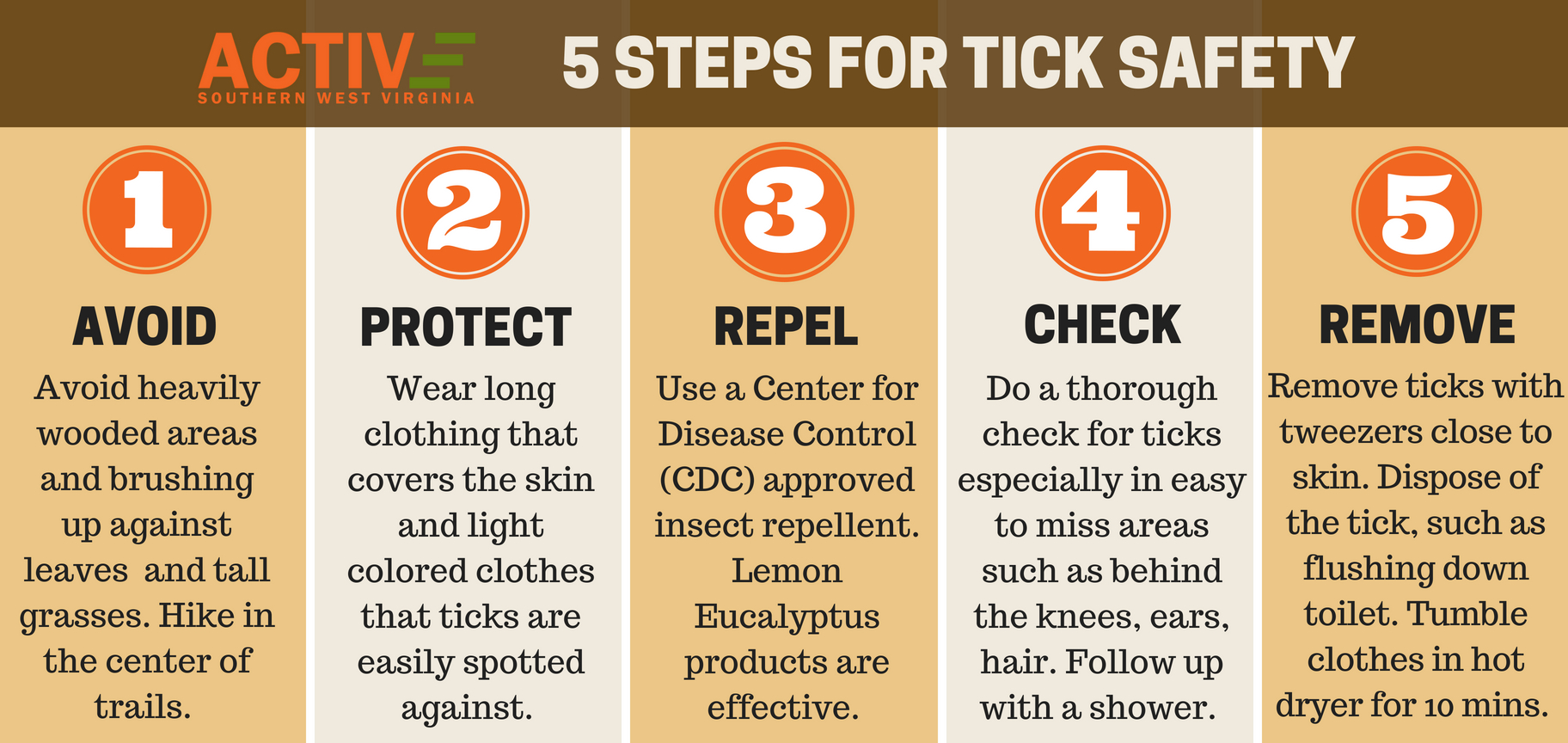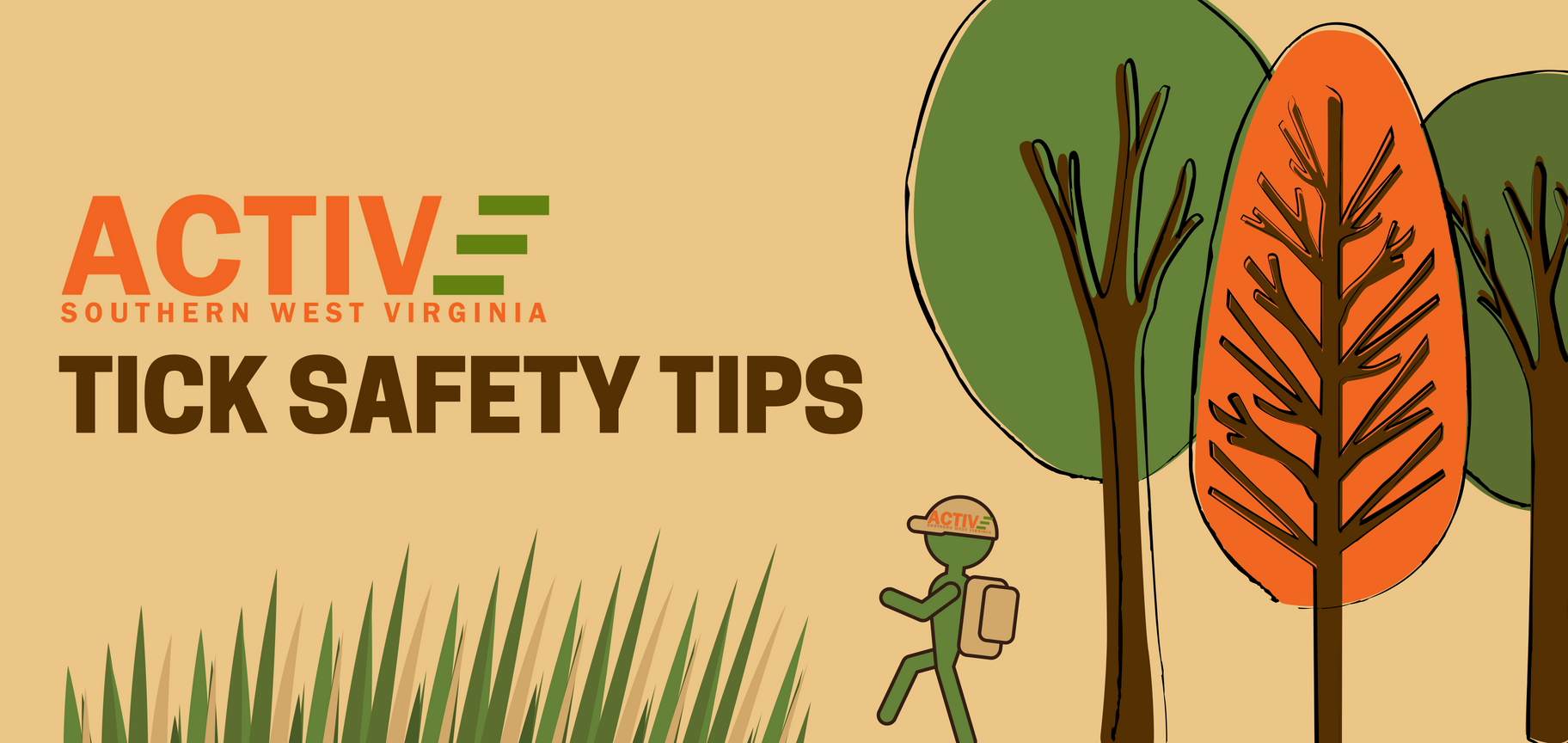What can you do to reduce your risk for Lyme disease?
- When you are hiking on our beautiful Southern West Virginia trails you can avoid exposure by sticking to the center of the trail. Avoid brushing against leaves and tall grasses, where ticks are typically waiting for a ride.
- You can prevent exposure outdoors by wearing long clothing that is lightly colored. This protects your skin but also makes the dark ticks more visible against the lighter colors.
- The CDC has a recommended list of effective insect repellents that can help in prevention. This is a very good idea as it also helps avoid bites from mosquitoes that also carry numerous diseases. There are many products on the market that work including natural ingredients that have been proven effective such as lemon and eucalyptus.
- When you go indoors you should shower and do a thorough tick investigation. Common areas for ticks include elastic waist band areas, spots behind the knees, behind the ears, armpits and anywhere else easily missed. Parents and appropriate guardians need to be thorough in helping children check for ticks.
- You can also throw your clothing into a hot dryer for ten minutes to kill any missed ticks. If you find a tick on your body remove it close to the skin with a tweezers and dispose of it in a way that it can’t escape and crawl back to people. Flushing ticks down the toilet is one strong choice.




